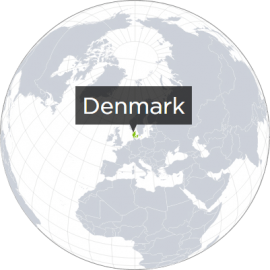
When the Legatum Institute published its inaugural Prosperity Index in 2007, we were at the zenith of the liberal order. Globalisation and free trade were lifting millions out of poverty, the Great Recession had yet to put a dampener on optimism, and there was no meaningful challenger in the ideological sphere.[i]
A confidence, even complacency, in the stability of the liberal international order resulted in government and business decisions being generally blind to the politics of other nations. Free trade was pursued without qualification. Europe’s energy supply became reliant on Russian gas, Europe and the US’s manufacturing was outsourced to China and other emerging economies. New threats such as environmental challenges and cyber security took over the defence agenda, leaving many to believe that the Kremlin was no longer a threat.
Today, with nationalist drums beating in the Taiwan Strait and Russian tanks occupying Ukraine, the political and ideological map looks considerably different. Realpolitik is back and the liberal international order is facing a meaningful challenge for the first time since the Cold War. Many aspects of prosperity beyond safety and security are now being determined by events in the international arena – including energy, trade, access to finance, education, health and even elements of personal freedom.
The consequences of shifts in the geopolitical map will be wide-ranging. Western governments are slowly awakening to the implications for domestic prosperity of deep economic dependencies on states which are now being dubbed as “hostile.” The gas taps potentially being turned off this winter in Europe is the most obvious example, but a rapid decoupling with China would have even more profound consequences if this were forced by ratcheting tensions in the Taiwan Strait.
Free trade across large swathes of the world in recent decades has driven prosperity, but this year also demonstrates that structural economic dependencies can also bring a vulnerability to major shocks with consequences that can ripple. The nature of trade also matters.
This essay provides a survey of the considerations that policy makers must make to ensure they properly safeguard both prosperity and security in an era that is characterized by a re-emergence of realpolitik. We focus on the implications of the growing power of Xi Jinping’s China and Vladimir Putin’s Russia in particular. We begin by emphasising that the paradigms of authoritarian leaders like these two men must be taken seriously because they are providing a genuine challenge to the liberal international order.
In this context, we turn to examine the implications of rising hostility to the West in three areas. First, we argue that deep structural dependencies on countries like China and Russia – whether for energy sources or semiconductors – can no longer be dismissed as a natural corollary of globalisation but must now be understood as a genuine risk which must be mitigated. Second, we examine the challenge that the current moment poses to the international rules-based system as well as civil and political rights around the world, observing that the argument for civil and political freedoms and the rule of law is going to need to be made with greater force in international forums. Finally, we turn to the implications for safety and security. The war in Ukraine demonstrates that we are going to need wise policy makers who have the wisdom, integrity, and courage to chart a course that never seeks to escalate but is realistic about when strength is necessary to avoid encouraging hostile states to push further than they should.
To read the full essay, download below.


